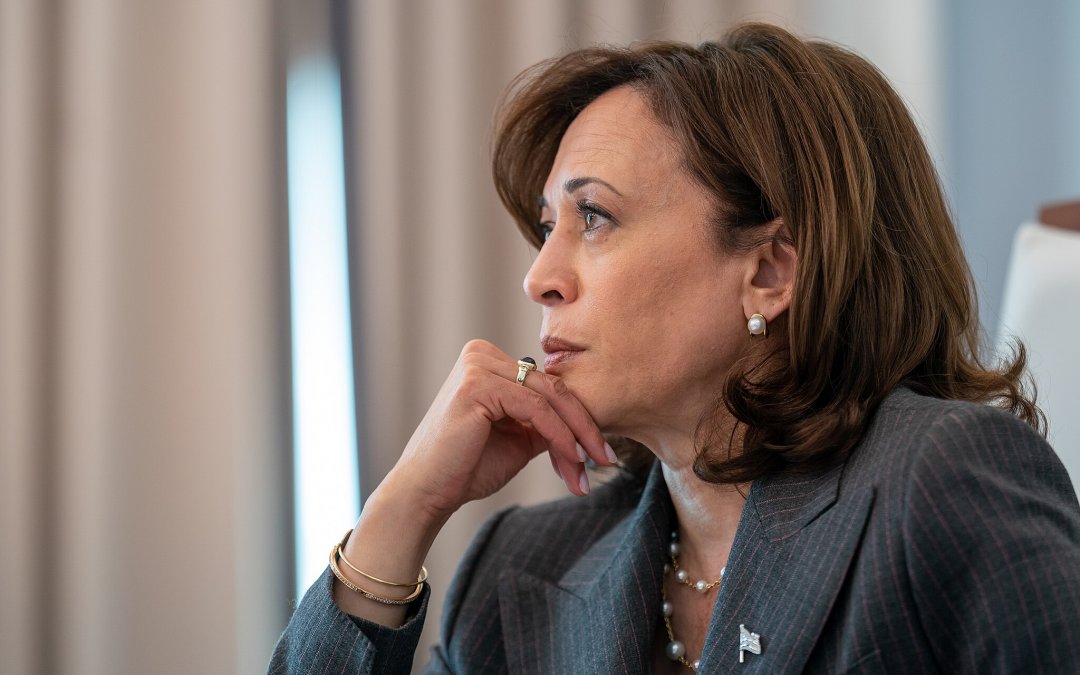WASHINGTON – Just over fourteen months into President Joe Biden’s term, he appointed Vice President Kamala Harris to lead efforts with Mexico and Central America’s Northern Triangle — Honduras, Guatemala and El Salvador — to address the root causes of the southern border crisis.
In his March 24, 2021 remarks, the President said that while it was “not her full responsibility and job,” Harris was qualified to lead the charge due to her experience as California attorney general, where she did “a great deal upholding human rights, but also fighting organized crime in the process.”
He then highlighted the importance of reversing some of the Trump administration’s immigration policies, like reinstating the $700 million bipartisan deal established under Obama to fund Northern Triangle countries and address issues driving migration.
“The best way to keep people from coming is to keep them from wanting to leave,” he said.
Now, as Biden’s term winds down, both his administration and the Harris-Walz campaign have pivoted to stricter border policies, responding to polls showing border security as a key issue for voters in this election cycle.
“The public has shifted,” said Colleen Putzel-Kavanaugh, an Associate Policy Analyst with the nonpartisan Migration Policy Institute’s U.S. Immigration Policy Program.
“It’s really this sense of orderliness that people are looking for,” Putzel-Kavanaugh said. People want to feel as if “the government is handling it and there’s been this general perception that the government isn’t handling it.”
A recent Pew Research Center report demonstrates just how much public attitudes have shifted. According to that study, 96% of registered Trump-supporting voters and 80% of Harris supporters agree that improving border security is an important issue.
Sahana Mukherjee, who co-authored the report and helps lead Pew’s racial and ethnicity research said that even though partisan divides on immigration policy still exist, it’s “significant” that both parties widely agree that there’s a problem with the way the government has handled its southern border.
“Border security is something that both candidates have been talking about, so I think that’s why you see a similar general sentiment amongst their supporters,” Mukherjee said.
Harris, who has been labeled as Biden’s “border czar” by her Republican opponents, has visited the U.S.-Mexico border just twice throughout her vice presidential stint. She travelled there once in 2021 and again in September 2024.
In addition to those trips, Harris has also visited Latin America, traveling to Guatemala and Mexico in 2021 and Honduras in 2022.
Her critics argue that for someone the president has tasked with handling the southern border crisis, she hasn’t visited it nearly enough.
While Trump routinely touts promises of mass deportation, Harris hasn’t proposed many concrete immigration policies in what will go down as the shortest presidential campaign in history.
Instead, she’s focused her attention on reviving a bipartisan border bill that once failed in Congress.
That bill, which Harris blames Trump for blocking and has vowed to push through if she’s elected, would overhaul the asylum process in addition to tightening detention policies and increasing green card availability.
Her recent immigration stance has shifted from what were more progressive policy positions just a few years back. During the 2020 Democratic Presidential Primary, Harris said she wanted to cut funding to Immigration and Customs Enforcement and supported easier pathways for asylum seekers.
Now she wants to enforce immigration laws and impose new consequences for unlawful entry.
“The United States is a sovereign nation,” Harris said during her speech at the border crossing in Douglas, Arizona on Sept. 27. “And I believe that we have a duty to set rules at our border and enforce them.”
Which candidate voters turn out for in Arizona is expected to play a critical role in the upcoming presidential election, with Trump currently holding a narrow lead in recent polls.
Harris’ visit to Douglas, which is one of the busiest ports of entry at the southwest border, came after a $400 million grant from the Biden Administration’s trademark Bipartisan Infrastructure Bill.
In her speech at the border, Harris mentioned Biden’s June 2024 executive order, which focused on limiting asylum seekers to official border crossings. That order has contributed in part to a 77% decline in migrant border encounters since December 2023, according to recent Customs and Border Patrol statistics.
Despite that recent improvement, Harris doubled down on the need for a bipartisan border solution. Without congressional backing, immigration centers receive the same funding they did prior to the executive order.
“So whether that’s at the border or in the interior, at the courts, they’re still getting the same amount of resources, but working with a much higher and more complicated caseload,” Putzel-Kavanaugh said.
While Mukherjee agreed that Biden’s executive order has likely contributed to the decline in 2024 illegal border crossing, she noted that those figures were already decreasing due to shifts within the Mexican government, which had nothing to do with any U.S. policies
She also said that, as she looks at Pew’s data, it’s unclear to her whether voters are aware of that drop in border apprehensions, especially as each campaign continues to make border security a key element of their message leading up to the election.
“Both Trump and Harris supporters agree that the immigration system in general needs major changes or needs to be completely overhauled,” Mukherjee said.

